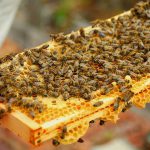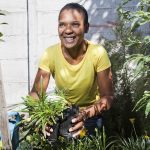
For those who might have missed it, the Department of Trade and Industry’s 2018/19-2020/21 Industrial Action Policy Programme (IPAP) were announced at the end of last month. Some of the IPAP interventions have been met with remarkable success. In the leather and footwear sub-sector, for example, exports of leather and footwear have grown by 167%, from R 1.98 billion to R5.29 billion, with a peak employment figure of 21,190 in the sector, “clawing back jobs to a level last seen in 2007” (IPAP, 2018). Accordingly, we pay attention to where the dti’s interventions are being directed.
Agro-processing, in one form or another, usually features. Rightly so. The value chain currently employs around 283,000 people, contributing 20.3% to manufacturing GDP and 2.7% to total GDP (IPAP, 2018). The country is a net exporter of agro-processed products and so by strengthening this sector, we can work on our trade deficit.
The latest IPAP diagnoses investment needs, contrainst and opportunities. Key Action Programmes in agro-processing are planned in the following sectors:
- Indigenous plants, identified as having “enormous wealth of agro-biodiversity and have the potential to contribute to improved incomes, job creation and local economic development”.
- To identify the potential of underutilised agro-processing facilities and turn them around as viable, sustainable, job-creating agribusinesses.
- Facilitate the development and competitiveness of the Halal industry.
- To work with stakeholders and investors to unlock constraints in the poultry value chain that currently inhibit new investments, deeper localisation and inclusive growth.
- Agro-Processing Export Development. This targets Rooibos and fruit export development, and sugar industry development.
Find the IPAP on the dti website, www.thedti.gov.za.
On Agribook.Digital find the following articles of relevance: agro-processing, leather, indigenous medicinal plants, poultry, rooibos, fruit and sugarcane.



Share this article







